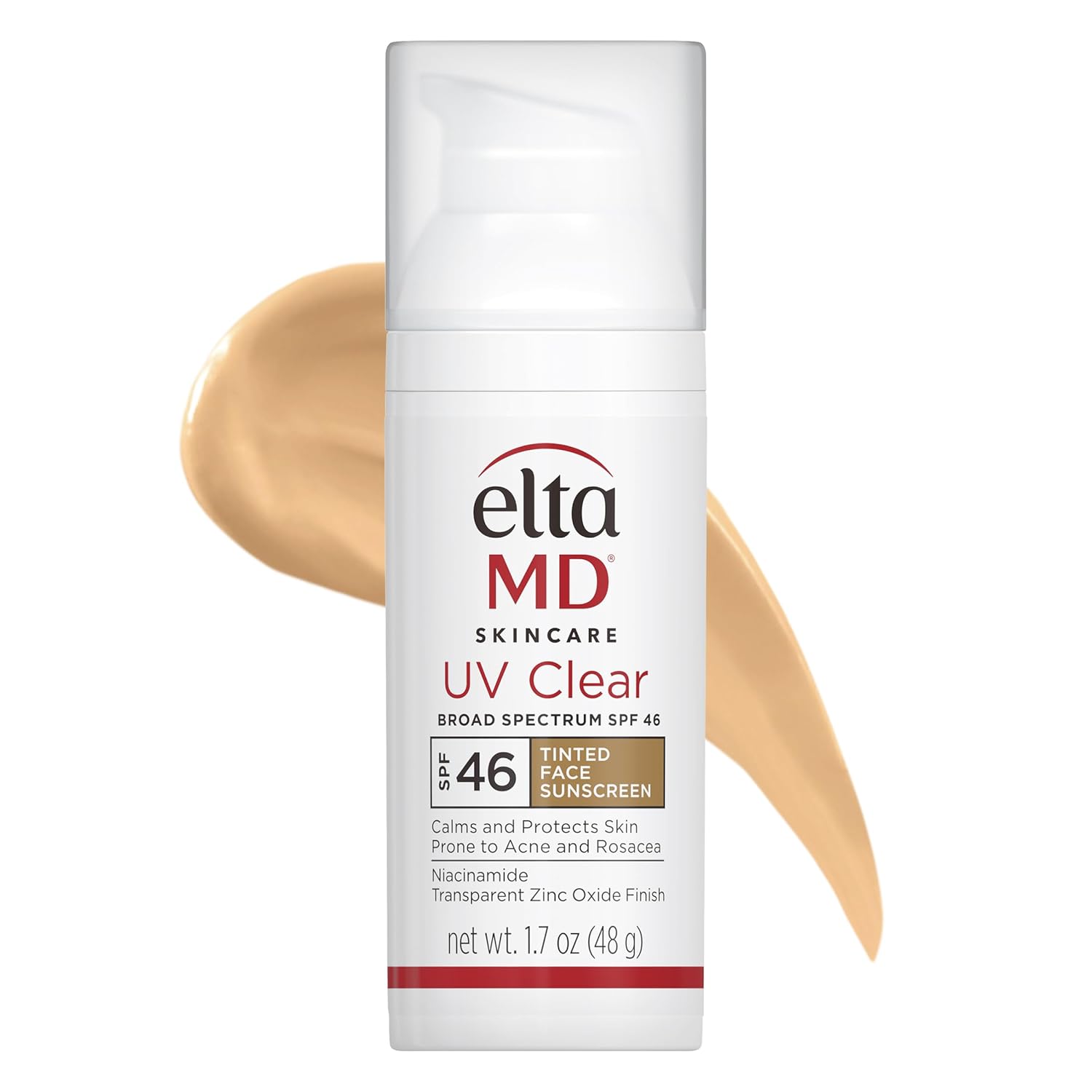












Price: $46.00
(as of Apr 08, 2025 03:18:16 UTC - Details)
The Best Sunscreen for Face: Your Ultimate Guide to Sun Protection
Introduction
When it comes to protecting your skin, finding the best sunscreen for face is essential. With countless options on the market, how do you know which one is right for you? Whether you're looking to prevent sunburn, reduce the risk of skin cancer, or simply keep your skin looking youthful, sunscreen is a must-have in your daily skincare routine. In this comprehensive guide, we’ll explore the best sunscreens for your face, diving deep into various long-tail keywords that will help you make an informed decision. From understanding SPF ratings to choosing the right formulation for your skin type, we've got you covered!
Understanding SPF Ratings
What Does SPF Mean?
SPF, or Sun Protection Factor, is a crucial term to grasp when searching for the best sunscreen for face. It indicates how well a sunscreen can protect your skin from UVB rays, the primary cause of sunburn. For example, an SPF of 30 means you can stay in the sun 30 times longer than you could without protection before getting burnt. However, it's essential to remember that no sunscreen can block 100% of UV rays.
How to Choose the Right SPF
Selecting the right SPF can be confusing, but here’s a simple breakdown. If you have fair skin that burns easily, consider a sunscreen with an SPF of 30 or higher. For medium to olive skin tones, an SPF of 15 to 30 may suffice. Always remember to apply generously and reapply every two hours, especially after swimming or sweating.
Types of Sunscreen Formulations
Chemical vs. Physical Sunscreen
When searching for the best sunscreen for face, you’ll come across two main types: chemical and physical (or mineral) sunscreens. Chemical sunscreens absorb UV rays and convert them into heat, while physical sunscreens sit on top of the skin and deflect UV rays.
- Chemical Sunscreens: Often lighter and easier to apply, they absorb quickly and are ideal for daily wear.
- Physical Sunscreens: These are great for sensitive skin and provide immediate protection. They are often thicker and might leave a white cast but offer broad-spectrum protection.
Gel, Cream, and Spray Formulations
Another consideration is the formulation of the sunscreen. Here are some popular options:
- Creams: Excellent for dry skin, creams provide moisture while protecting against the sun.
- Gels: Lightweight and non-greasy, gels are perfect for oily or acne-prone skin.
- Sprays: Easy to apply and great for on-the-go touch-ups, sprays are convenient but may require more frequent reapplication to ensure full coverage.
Ingredients to Look For
Broad-Spectrum Protection
One of the most important features of any sunscreen is broad-spectrum protection. This means it protects against both UVA and UVB rays. Look for ingredients like zinc oxide or titanium dioxide for physical sunscreens, and avobenzone or octisalate for chemical options.
Antioxidants in Sunscreen
Many modern sunscreens now include antioxidants, which help protect your skin from free radicals generated by sun exposure. Ingredients like vitamin C and E not only enhance your skin's defense but also promote a healthier complexion.
Sunscreens for Different Skin Types
Best Sunscreen for Oily Skin
If you have oily skin, you’ll want a sunscreen that is lightweight and non-comedogenic, meaning it won’t clog your pores. Gel-based sunscreens or oil-free lotions are great choices. Look for products labeled "matte finish" to help control shine.
Best Sunscreen for Dry Skin
For those with dry skin, opt for a sunscreen that contains hydrating ingredients like hyaluronic acid or glycerin. Cream-based formulations are ideal as they provide moisture while protecting your skin from harmful UV rays.
Best Sunscreen for Sensitive Skin
If your skin is sensitive, it’s best to stick with physical sunscreens. Look for formulations that are fragrance-free and designed for sensitive skin, as these will be less likely to cause irritation.
Application Tips for Maximum Protection
How Much Sunscreen Should You Use?
One common mistake people make is not applying enough sunscreen. The general rule is to use about a nickel-sized amount for your face. Make sure to cover all exposed areas, including your ears and neck.
When to Apply Sunscreen
For optimal protection, apply your sunscreen 15 to 30 minutes before going outside. This allows the ingredients to bind to your skin effectively. Don’t forget to reapply every two hours or immediately after swimming or sweating.
Best Sunscreens for Face on the Market
Top Picks for Daily Use
- La Roche-Posay Anthelios Melt-in Milk Sunscreen: This chemical sunscreen is lightweight and perfect for daily use.
- Neutrogena Hydro Boost Water Gel Lotion: A gel-based sunscreen that hydrates while providing broad-spectrum protection.
Best for Sensitive Skin
- EltaMD UV Clear Broad-Spectrum SPF 46: This physical sunscreen is ideal for sensitive and acne-prone skin.
- Blue Lizard Australian Sunscreen: A mineral sunscreen that offers excellent protection without irritation.
Conclusion
Finding the best sunscreen for face doesn’t have to be overwhelming. By understanding SPF ratings, the types of formulations available, and which ingredients to look for, you can make an informed choice that suits your skin type. Remember to apply generously and reapply frequently for the best protection against harmful UV rays. Prioritizing sunscreen in your daily routine is a simple yet effective way to maintain healthy, youthful skin for years to come. Stay protected, and enjoy the sun safely!
